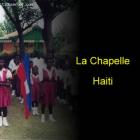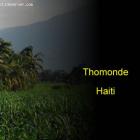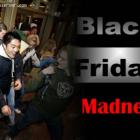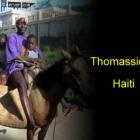Dondon Cave History Intrigues
ADVERTISEMENT
Dondon is a farming village that produces coffee, cocoa, lemons, and sugar cane. The village infrastructure is weak, with no access to electric power and no paved roads. Very little auto traffic exists, the main modes of transportation horses and walking. No airport exists either, with the nearest located in Cap Haïtien.
The landscape of Dondon is striking, with mountain ranges, plains, and rivers bordering the village. From the ground floor looking up, an awe-inspiring sight greets the viewer. Colorful dwellings embedded in the mountainsides soar heavenwards, and stunning mountain-peak vistas succumb to plunging ravines everywhere in the village. And the villagers have heard rumors valuable mineral ore is hidden in the ridges burrowed into the mountainside.
Folklore about the splendid caves, scattered about the village, claims they are holy spots of primitive religions. In ancient times, tribal chieftains made sacrificial offers to the gods, interpreted oracles, and worshipped the new moon, believed to exorcise evil spirits. Today Voodoo adherents hold their rituals inside these caves. Cave etchings on the walls harken back to Spanish colonialists when they ruled the island of Hispaniola.
Iconic figures from the past have inspired monuments in Dondon, one being Haitian General Clervaux, whose death occurred in 1857. Another notable personage, Jesuit Le Pers, is entombed close by.
Read more: town, North Department, Pre-Columbus Period, Cave, Dondon, Bassin Caiman, Laguille, Brostage, Haut du Trou, Matador, City
« Ferrier, originally named Maribeaux | Main | Capotille produces cassava, corn, and pistachios »
Leave a Reply
Name (required) E-mail (required, will not be published)
» »
Our objective is to share with you news and information about Haiti and the people of Haiti. Traditions, habits and the way we were or grew are alive in this site. We highly recommend that you Subscribe to our Newsletter and also share with us some of the things that are memorable and made us unique people.


 La Chapelle, Haiti
La Chapelle, Haiti  Thomonde, Haiti
Thomonde, Haiti  Black Friday Shopping Season
Black Friday Shopping Season  Haitians are a Proud People
Haitians are a Proud People  Thomassique, Haiti
Thomassique, Haiti